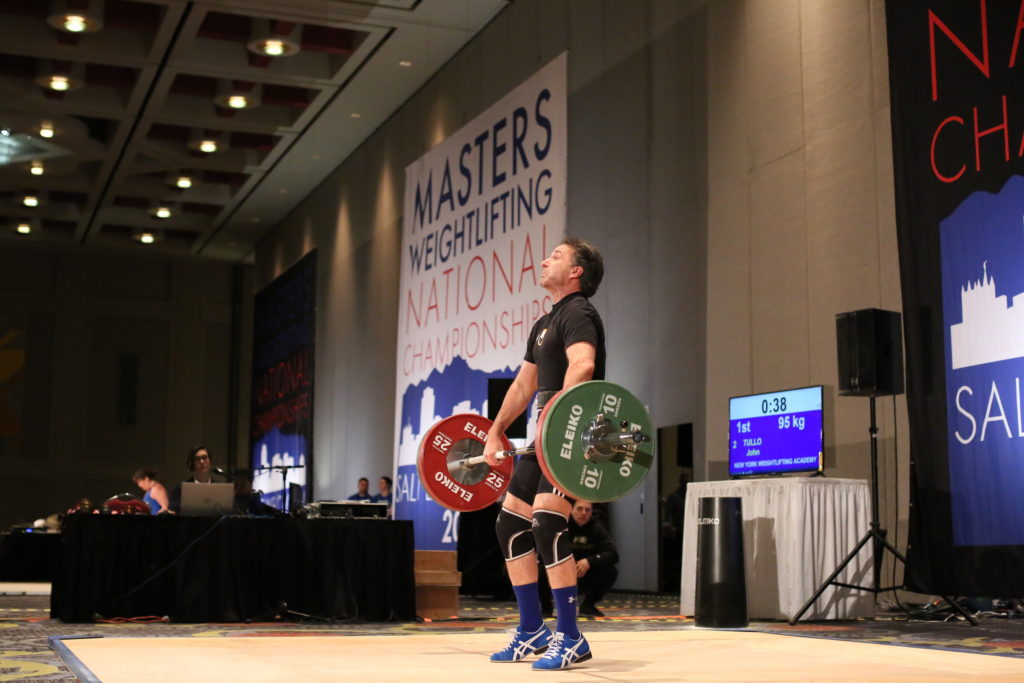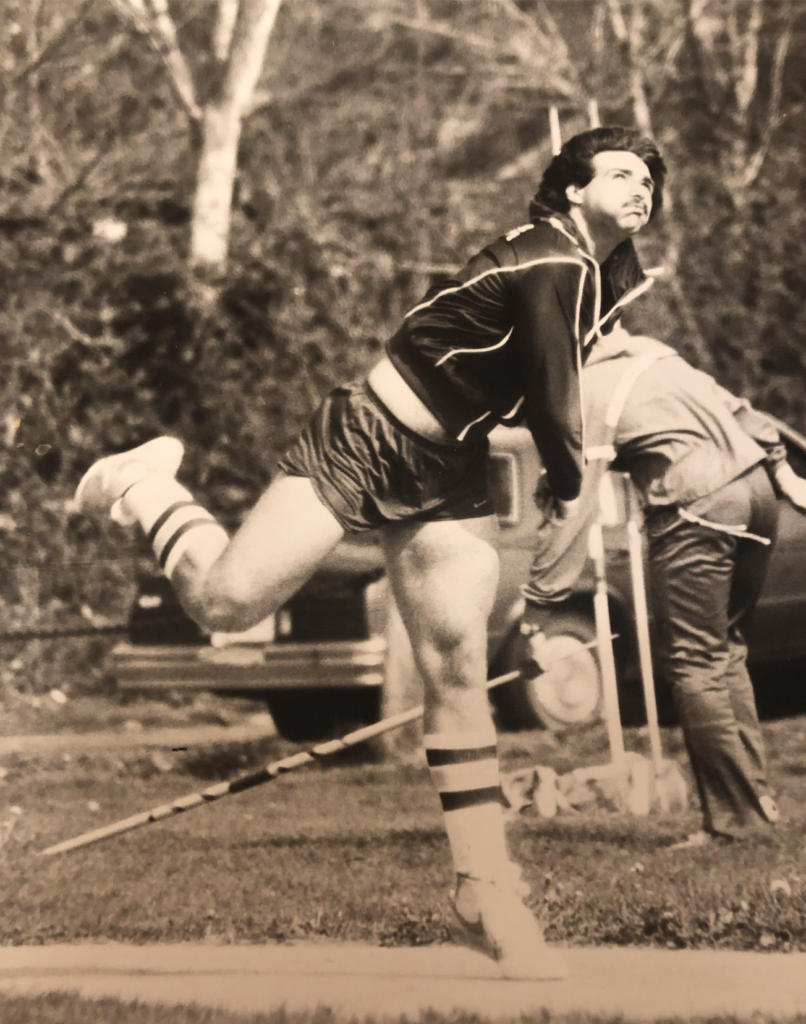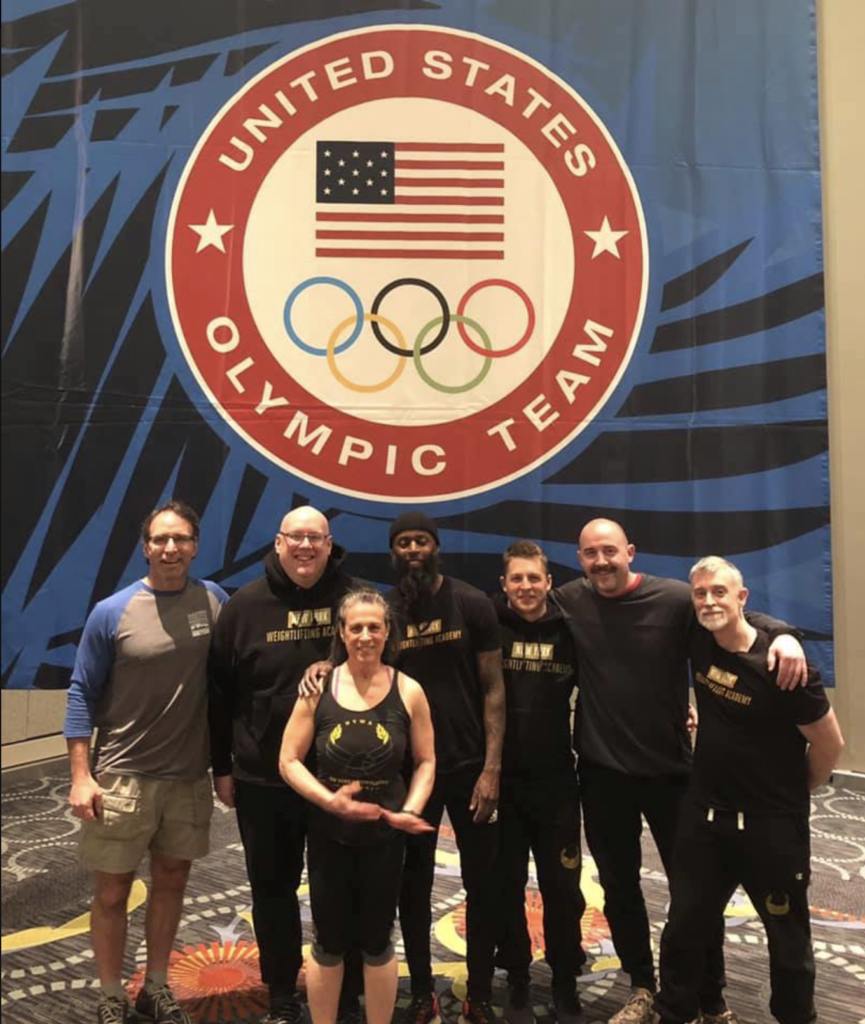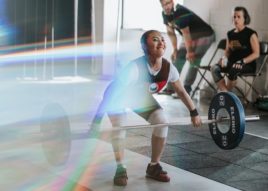Last week over 800 Masters athletes from around the country converged on Salt Lake City, Utah to compete in the annual national competition. This event took four full days with athletes ranging from 35 years old to 87 years old. The level of experience also widely varied, from first time competitors to very experienced ones. As this was my first big weightlifting competition, I was excited to take it all in and learn as much as possible.
Competitions are an opportunity to test yourself on multiple levels. To prepare, most people focus a majority of their time on the physical portion and often are very ready for the competition from a physical perspective. But physical preparation is only part of the equation. The mental preparation phase should not be overlooked.

Although I am new to competitive weightlifting, I do have experience competing at a national level as a javelin thrower for many years. Let me share a few of those experiences that I am more familiar with and then show how these lessons can be transferred to preparing for weightlifting competitions.
Over the years, I made plenty of mental mistakes and was often unprepared to deal with the various track meet conditions. I learned the hard way that you need to know how you will perform under different scenarios and not just hope things will go well.
For javelin throwers, the weather can be a big factor. For example, is the day hot and sunny or cold and rainy or maybe even snowing? Is the competition held on an all-weather track or on grass? Is it windy? If so, is it a headwind, tailwind, or crosswind?

To prepare, I would practice different combinations of factors so I would be more comfortable to compete well when the time came. For example, I learned how to throw in a nasty crosswind when it was raining hard. And then, when there was a meet with similar conditions, I had a plan on how to handle it. Likewise, for large track meets, you may have to wait 10-15 minutes for your turn to throw. In typical practice sessions, you may only take 1-2 minutes between throws. To simulate meet conditions, I would sit around for 10 minutes or so between practice throws. So, how does this translate to weightlifting? Let’s look at a few scenarios.
Earlier I said that most people were physically well prepared for the competition. The mental preparation phase is just as important and I learned a lot at this recent competition. Most people usually do the same warmup each training session at their home gym. Let’s say someone gets to the gym at 7pm, warms up on a bike or rower to get some blood moving, then does some foam rolling, some band work, hops on the GHD machine, etc. and then starts working with the weights.
Now, think about going to an event that begins at 8am, has no bike, rower, foam roller, GHD machine, etc. How would that same person adjust from their typical warmup routine? How comfortable would they feel? Will they be ready to compete at their best? Also, think about the timing between lifts? Are you comfortable with a short rest time between lifts, say 2 minutes? What about a long time, like maybe 10-15 min? Have you ever had a training session where you took a 30-40 minute break between performing snatches and clean & jerks? These are just a few of the different scenarios that can come up in a competition. For someone new to weightlifting or those people that compete only 1-2 times a year, these scenarios can easily challenge the performance of someone who is very physically prepared.
One way to be better prepared is to compete more often, say 5-6 times a year. This would allow a person to experience a wider range of scenarios. But many of us cannot compete that frequently for various reasons.
As an alternative to frequent competitions, try working with your coach to incorporate different scenarios into your regular training sessions. After last week’s experience, we will be adding more variety to simulate meets into our plan for myself. Then in future competitions, I will feel better prepared and more confident to perform at my best.
As I said earlier, competitions are a chance to test yourself both physically and mentally. In addition to physical preparation, take more time to prepare mentally for a competition. Think long term and work with your coach to identify your strengths and weaknesses and then put together a plan to make improvements – both physical and mental. Enjoy the journey!




